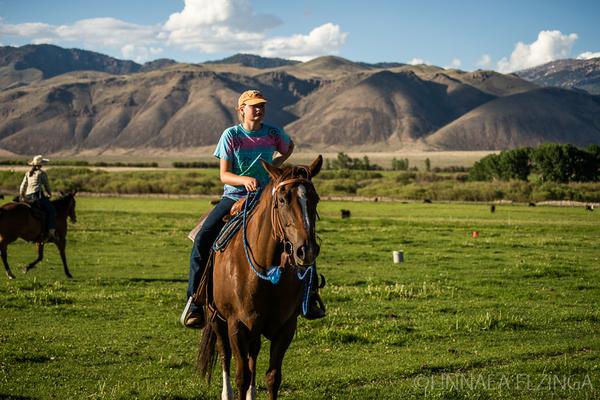
The sun tired of shining high and bright in the sky, and started its now deliberate descent to the horizon. It was springtime in Idaho, and as was often the case just before dusk, a breeze was picking up, evidenced from the left-drifting trail of dust emanating from the pickup on the road ahead.
Mike Leaton was glad this inspection was almost done. It was the last field on a fairly good sized organic grain operation, and Mike was ready to call it quits. His wife, Linda, was right as usual. After all, he had just turned 75, and he knew it was probably a dumb thing to come out of a perfectly adequate government retirement to do this. But from his sterile post-work existence centered in his perfect living room surrounded by a manicured yard around his Idaho Falls home, it seemed at the time like it was a good idea. Golf, and the likes of it were not his thing. Games never interested him. The problem was that retirement was boring.
After all, he could work out of his home, unlike in his other inspection job, which took him into the depths of intrigue at far flung exotic locales worldwide. But now, he often wearied looking at field after field, especially at this time of year. It was May, and not only were the longer days of daylight translating into longer days of work (there was no overtime in the tight Ag Department’s budget), but there wasn’t even the pleasure of looking at carefully tended crops waving in the breeze of an Idaho summer.
And then, there was that occasional farm on which there was that nagging sense that something didn’t “smell right,” as Mike used to say. This operation was one of those. It was that uncanny sixth sense that propelled him to ask to see every field on the 12,000 acre operation. So, he dutifully followed the dust trail of the farmer’s late model Dodge pickup, roaring across Idaho desert turned cropland, thanks to the plentiful water offered by a snowpack that still blanketed the Tetons, clearly visible to the east in all their granitic glory. The jagged peaks protruded from the monotonous grain and potato checkerboard spread across the broad Snake River Plain. 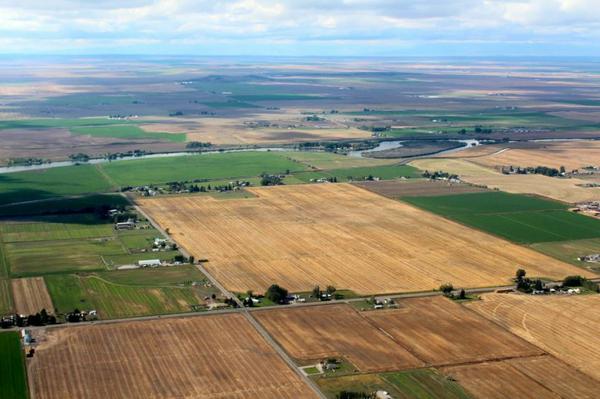
It was a far cry from where Mike had worked his last 35 years. He was an inspector then as well, but it was for the little known government agency called APHIS, the Animal and Plant Health and Inspection Service. It often took him to exotic ports in tropical locations, where, as the official on hand to represent the US Government and the interests of the American people, he had to ensure that illegal plant and animal import materials, whether they be dead or alive, were not brought intentionally or inadvertently to the shores of the US.
In addition, he had to ensure that legal imported living or dead plant materials did not have insect stowaways. Or that imported animals did not pack with them invasive plants or the digestive tract borne seeds of them. Allowing these to make landfall in America was the reason for most weeds, diseases or insect pests that have decimated native North American species, many of our worst brought in from world ranging ships casting their unneeded ballast without a thought on the shores of a young country.
The victims? Native plants and animals first. For instance, American Chestnuts no longer dominate eastern forests due to chestnut blight, introduced to North America on Japanese nursery stock in 1904. The death toll of over 4 billion magnificent guardians of the eastern hardwood forest was the result. Today, those “chestnuts roasting on an open fire” crooned about by Nat King Cole are all European and Asian chestnuts.
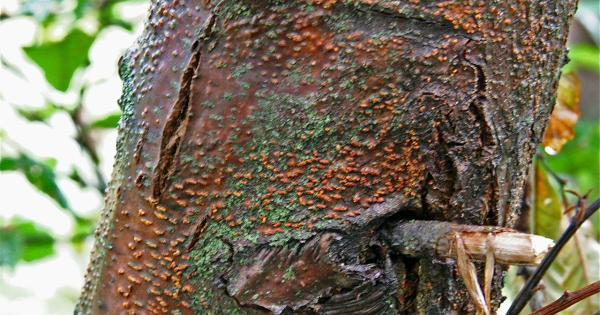
Secondly, it is us, the people of this land that are victimized. Species decimation means the loss of opportunities in food, material and medicine. And equally important, is the loss to the land, and to the hearts and souls of us who live on it and love it.
There are scores of other species that have been decimated or severely impacted by the uncontrolled importation of invasive species. Mike Leaton had an unseen, and unheard of job as the protector of the natural and cultivated legacy of America. It wasn’t a job without risk, because, on the intentional side of illegal importation, it had a one word definition: smuggling.
And that was a world of graft, danger and intrigue. Mike was exposed and targeted by drug cartels and gangs, and in the gray area of shipping and the flexible borders offered by water conveyance, he was often outside the protection of our own agents; foreign agents were often the recipients of bribes to look the other way when contraband passed.
It was a job that meant fluency in many languages, as he ordered container ships to open containers, and cargo ships to open their cargo holds. He infuriated captains and crews, longshoreman and port police with his tedious and stringent examinations of cargo. It was no wonder he was bored with retirement.
Perhaps the language he became most fluent in was that universally subtle lexicon of human body language, of minute cues and twitches of facial muscle and hand, of eye contact and not. Mike admitted that his perception of it wasn’t something he was conscious of. Instead, it became a sort of sixth sense.
A feeling. It allowed him to read words where others only saw the empty page.
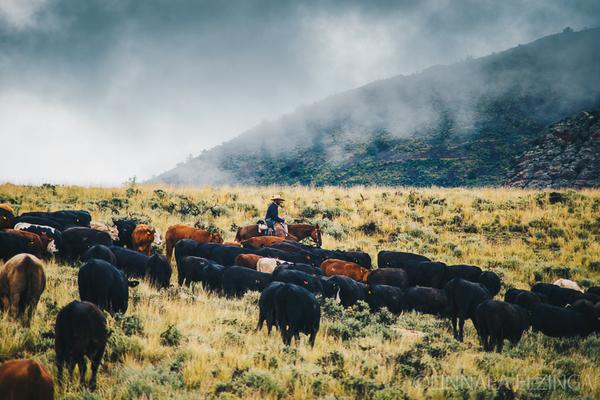
Mike was an organic inspector. He had the thankless job of protecting the rights, the life and livelihoods of people he would never meet. It was now part of his being, his blood, and today was no exception.
As the wind drifted the dust cloud to settling over a large field, Mike could see the glow of the brake lights in front of him. The pickup had stopped. As he halted his truck behind the dusty tail-lights, Mike checked the map in the systems plan packet he had on the operation. This looked right. Another field of organic barley. Malt barley that would one day be destined for a glass of cold, refreshing certified organic beer. Maybe it would be a deeply hoppy IPA, or a smooth amber ale. Either way, the holder of said glass wanted an additional attribute to that refreshing brew: they wanted to be certain of its origin, and were willing to pay for that truth.
The farmer stepped out of his pickup, sunglasses glinting in the setting sun. “Well, this is the last one, Mike.” He smiled broadly, and gestured across the pickup trucks to the arrow straight furrows in the field. “Certified organic malt barley. We just drilled it last week.”
Mike gathered his clipboard off the passenger seat of his truck, placed it on the hood, and pretended to leaf through papers. He looked again at the farmer, with sunglasses still on, now turned away from the field and Mike. The barley farmer instead was looking at the mountains.
“Should be a great water year, don’t you think, Mike?” He glanced briefly over at his inspector, who had eyes now down again, slowly flipping through the maps and organic documents. “Have you ever seen that much snowpack?” He tried again, vainly attempting to build a rapport and engage Mike’s attention, who still was facing the furrows, now backing away from the hood of the pickup, then quartering to the right, away from the farmer leaning against his Dodge. Mike turned his back to the farmer’s incessant patter, and commenced to make his way around the rear bumper of his own dirt encrusted Chevy. Inspector Michael J. Leaton was heading for the field.
The farmer’s voice raised a barely discernible increment in pitch. Mike’s years in training ear picked it up, perhaps subconsciously. “It’s supposed to rain on Tuesday.” He was now walking behind Mike, trying to catch up to the slowly but deliberately moving aged inspector and hopefully catch his ear, his attention. “That’s sure gonna make this grain jump,” he said loudly.
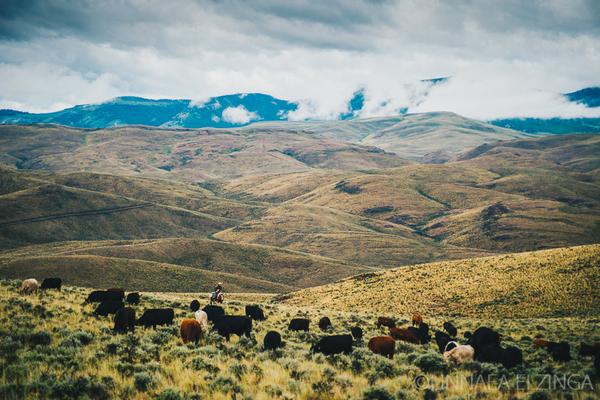
Mike was now off the road, walking through the green sward of roadside grass and weeds, and made his way toward the fresh furrows. There were more overtures, attempts at conversation from the farmer, and Mike woodenly nodded to be polite, but the inspector was on a mission: he had to know. It was time.
Mike crossed into the seeded, or drilled section of the field, following drill furrows that marched off in perfectly converging parallel lines to the end of the field, nearly to the horizon about a half a mile away.
There was no ceremony, or dramatic pause for what happened next. About 20 feet into it, Mike stopped, bent down, and with his hand, swept away the soil to expose the drill furrow to where he knew the barley seed would lay, patiently awaiting moisture. Seeds were always a promise to Mike; they were the beauty of hope in nature. In agriculture.
The farmer had stopped at the edge of the field, not following, and watched from behind his sunglasses. He had stopped talking.
The seed was there. With his fingertips, Mike gathered some of the tiny non-germinated berries of seed barley into his hand.
Each seed had on it a very pronounced, nearly florescent and curious shade of pinkish purple.
The inspector slowly, deliberately turned back to the pickups, the setting sun, and the farmer, as the breeze caressed Mike’s sunset glowing face. The wrinkles of time, wisdom and experience were furrowed into his features, not like the rectilinear field he stood on, but with the random character and weathering of the passage of time. Inspector Leaton looked over his bifocals to the farmer. He held out and slowly opened his hand, seeds in it.
And said nothing.
The wind lapped the lush spring roadside grass in waves around the farmer’s booted feet; his plaid flannel shirt rippled in sync with the rhythm found in the grass. Although his body was oriented directly toward Mike, his sunglasses shielded his eyes, his mind, his soul from the piercing eyes of the inspector.
The looked upon each other for a minute. Then, the farmer turned, and walked silently, quickly back to his late model Dodge 3500 Ram Cummins Turbo Diesel pickup, jumped in, and drove off.
Mike Leaton watched as the dust from the leaving truck drifted across the field in the idyllic long shadow light illuminated by the Idaho sun dipping below the horizon. He inverted, and opened his hand, and the seeds tumbled back to the ground, carried back to the earth, now a little behind him, borne by the persistent breeze.
They would grow. But they would never be organic.
He would gather more as evidence in a plastic sampling bag, as he built a case in photographs and written documentation demonstrating prohibited substance use. Mike’s paperwork trail would recommend that said farmer would be denied organic certification for illegally using chemically treated fungicide in his would-be organic operation. The color was a dead giveaway, and the farmer knew it. And inspector Mike Leaton knew the farmer knew it.
The farmer was a cheat. The love of money is a crippling thing. The man had a lovely wife and three young kids who would someday find out that their husband and Daddy was a cheat. Perhaps they would be raised to be the same, and it would not matter. Maybe it would validate their own interpretation of how to get ahead: “My Daddy did it.”
I just finished my own organic inspection here on Alderspring. As always, it was a little grueling. This year was particularly so, because my inspector, who I have never had before, was raised on an Angus ranch about 4 hours south of Alderspring. So, unlike in other years, there were no ignorant questions that wasted time about the raising and handling of cattle, pasture and hay. No time was wasted on inspector education.
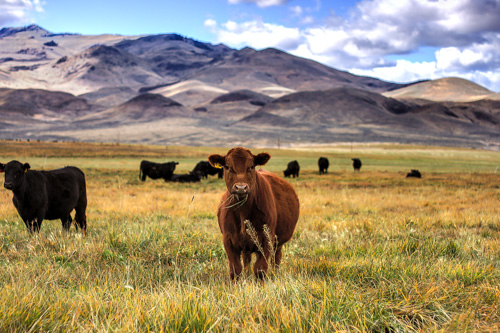
We’ve found that grazing on organic pastures has some positive side effects on the health of our cattle. We can’t sell beef as organic that has ever been treated with antibiotics. However, we rarely treat with antibiotics. Our cattle just don’t get sick. For our entire summer herding on the range, we had no health issues besides the occasional stone bruise that healed up in about a week and of course the infamous steer nicknamed Snakebite, who still recovered by the end of the summer.
Instead, this guy, who I’ll name Jeff, cut right to the chase, with very intentional and pointed questions about the raising of Alderspring’s own Angus cattle. As I do, he knew exactly where a person could easily cheat the rules in a beef operation. And he went right there.
“Do you have some of your products in that freezer?” Jeff asked as he looked up briefly from his laptop. We had just finished an intensive tour of the 1650 acres of deeded land and 70 square miles of rented pasture, looking at cattle, tag numbers and buffers along neighbor’s fencelines (in case they spray), and now, Jeff and I were at the bunkhouse cowhand table. Its 10 foot length was covered by stacks of papers, maps, ledgers and notebooks. He summarily examined each, taking pictures, typing on his laptop and making notes in his own ledger.
“Yes. I’m sure we do. We give the cowhands all the vacuum compromised product.”
“Could you bring me a few cuts?” No looking up now.
“Sure.” I got up, and reached in the cowhand freezer. I found a popped NY strip and some grind, and placed it on the table in front of Jeff. He briefly glanced at the lot number on each and captured them.
“From this lot number, tell me exactly where and when this animal lived over every step of its life, supported by your records, all the way back to where it was born, and who its dam (mother) was, and where she came from, including slaughter date, aging time and final destination of the beef.” He would even ask exactly who would consume said beef from a given animal.
It’s called a traceback. It is intense. Organic is the only labeling in the world that requires exact traceback to the particular origin of any animal or plant labeled as such. And Jeff would do several of these before the day was out. Dutifully, I showed him. I hate recordkeeping to this degree, but the law requires it, and customers trust organic branding to make it happen.
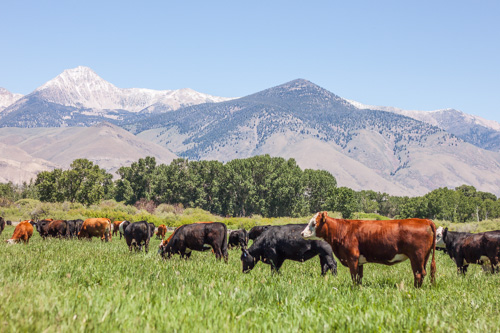
At every inspection, the inspector will pick out a few cuts or random lot numbers, and we have to have the records on hand to show which animal that cut came from, where that cow grazed and what it ate, where it was born, and who its mother was. Every single cut we sell has this level of traceability. It’s a requirement of being organic, and the inspection keeps us accountable to you, our customers.
Another hatred confession: when people slam organic certification. We work our hides off to be organic. Just dealing with invasive species alone (weeds), we spend over $30K a year to use non-chemical controls to get it done. We keep records to prove it. We coordinate with neighbors, agencies and county weed boards to keep their spray equipment off of our lands and rented pastures.
We figure out ways to ensure the better health of our beeves without the “easy” and conventional solution of using chemicals on their cattle (I don’t know of a grass fed producer that doesn’t use several chemicals that can end up in their beef, unless they are organic).
And I see many of those producers who say libertarian-sounding things to their customers like “We don’t need the “Gub-mint” to keep us honest, and we won’t support this form of government regulation of private property rights.” I see consumers being manipulated with non-sequiturs instead of being able to proceed and participate in critically constructed discussions about truisms.
My belief is that such producers either don’t want to go through the work of organic, or they have something to hide—an inconvenient truth, so to speak, or both.
They’ll say hormone and antibiotic free as if that is a catch all. The truth is that antibiotics and hormones are only the tip of the iceberg in chemical use that leads to food contamination in cattle. So if you, the consumer, think you can guarantee chem-free with a label claim such as that for you and your family, you are being deluded. It’s a bunch of happy horse crap, smearing and clouding over the unspoken truths about their use of chemical pour-ons, herbicides, fertilizers, GMOs and post process Clorox on their cattle, to name a few.
Anyway—back to Jeff, cattle raising veteran. We, Alderspring Ranch, passed certification, at least at the field inspection level. They would take several weeks to ensure that all the recordkeeping added up in their office.
I glanced down at the exit interview form as Jeff drove out of the yard. “No issues,” it read in clearly printed handwritten letters on the carbon copy, as signed by inspector Jeff. Quite a stressful day, really, not because we cheat and have fear of being found out, but because if the proof isn’t there to prove that we didn’t cheat, we still are denied certification.
So when you see that USDA organic seal on a package of our beef, know that there is a ton of sweat equity in that. And I guarantee that any small producer who has won that approval feels the same way. Big corporations are a little different, to be sure. They have entire staff sectors that ensure compliance. They have economy of scales that make their investment in organic feasible without undue stress to the individual employee who works in their compliance division. They go home at night from their nine-to-five living, and have a glass of organic beer.
But for the smaller family ag sector, it is a huge investment of time and a major cause of stress. It is checking and rechecking that all the t’s are crossed and the i’s dotted.
Thanks for trusting us. But if you don’t quite yet, well, I don’t blame you. So, until you do, look to that USDA organic seal, because it says you can.
Happy Trails.
Glenn, Caryl Cowhands and Girls at Alderspring

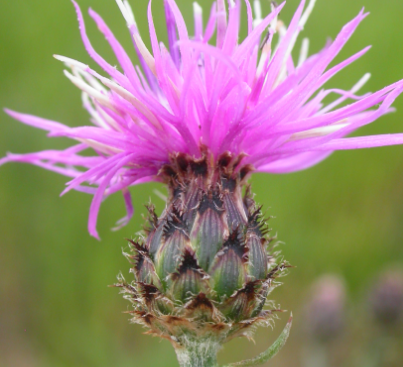

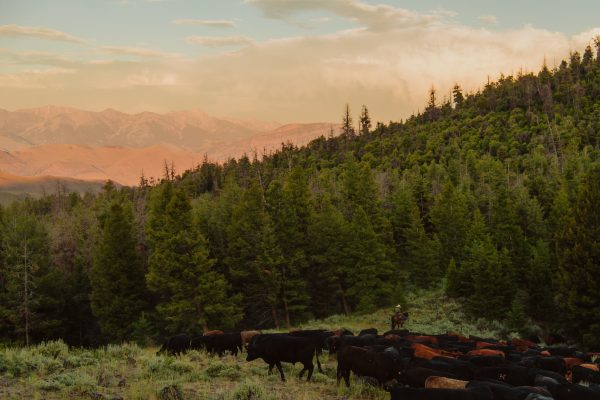



Annie Buchwald
I thought I knew about what “certified organic” meant but learned so much in this article! Mass respect and gratitude to all of you for the mind blowing amount of work you do!!!
Glenn Elzinga
Thank-you, Annie! And remember, you can ask us anything.
James Brown
New subscriber to your newsletters and soon to be customer. I have always wondered why some grass fed/finished beef did not include “organic†but did state hormone and antibiotic free. Now I know, thanks to you.
Well done, education is power!
Karen
Thank you for spelling this all out. Although I’ve been buying organic for 50 years, I didn’t know the details of organic meat certification – I see how much work it is for you but I’m glad to know this is the process and I hope it stays this way. Thank you for all the work you, the family and team do. It’s very appreciated! I will be even more vigilant about buying organic and, in particular, from family farms. Love the photos and stories in support of regenerative agriculture!